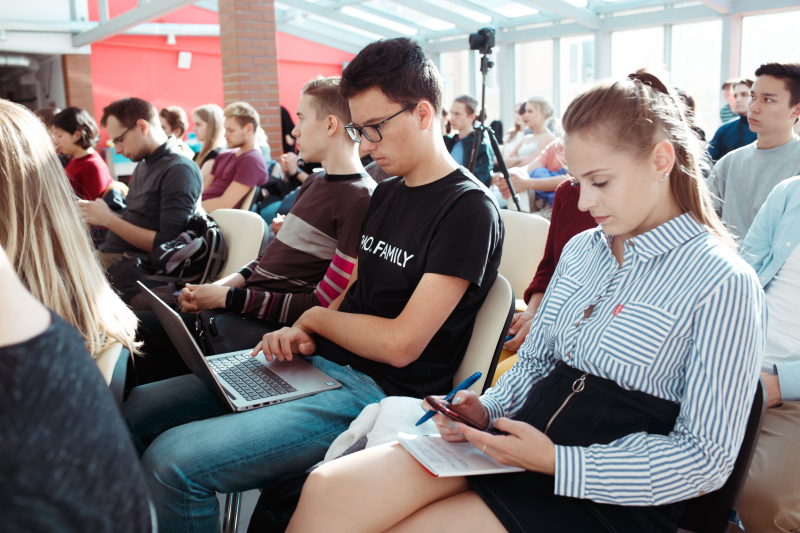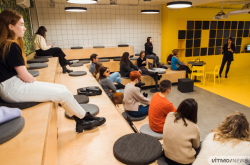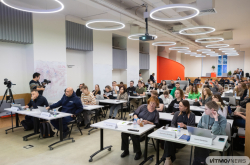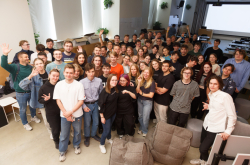A new field and a new partner
In September, ITMO University won the contest of acceleration programs held by the Ministry of Science and Higher Education within the federal project Platform for Technological Entrepreneurship at Universities.
“ITMO is no newbie to student tech entrepreneurship or acceleration programs, so the university fits right into the new federal project. I am proud to say that ITMO is often cited as an example of a university with a functioning infrastructure to support student tech entrepreneurship at various seminars held by the NTI Platform,” shares Igor Kuprienko, head of ITMO’s Project Development Department.
Having won the contest, ITMO University secured over seven million rubles in funding that the university will receive before the end of 2022. This prize would be used to train student startup teams, support and commercialize innovation technologies, as well as create foodtech businesses.
“The foodtech market was greatly boosted by the popularity of both delivery services and healthy eating habits. We can see this field growing rapidly in Russia, with relevant startups receiving significant investments,” says Alexey Solomatin, head of ITMO Accelerator.
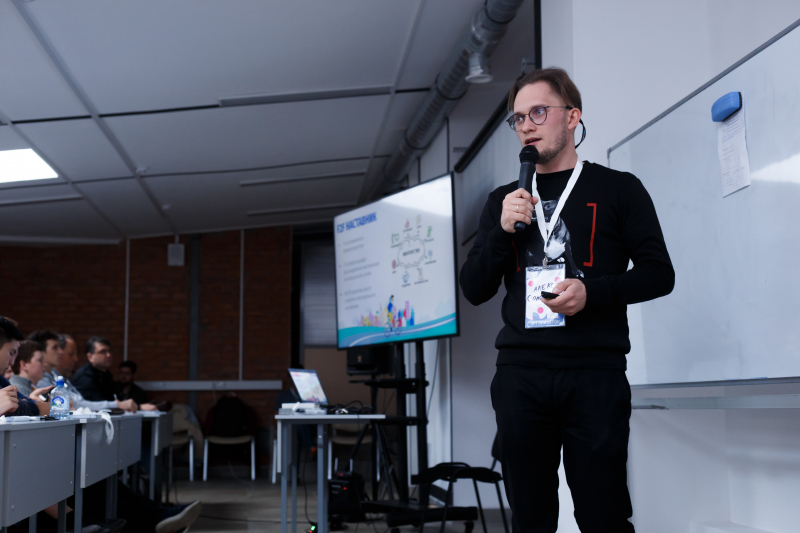
Alexey Solomatin. Credit: ITMO University
Foodtech became a new frontier for ITMO Accelerator.
“Foodtech is the new sexy! While ITMO Accelerator usually targets various fintech, edtech, medtech, and adtech projects, we are now turning to the so far not so common foodtech projects with this new track developed especially for them. It is an ambitious and interesting task for us. We review all the incoming applications and I can say that some of the suggested projects are quite promising – they might well enter the market very soon. After the contest’s results were announced, we were approached by foodtech accelerators and experienced industry representatives, who are ready to launch pilot projects with our participants,” says Olesya Baraniuk, deputy head of ITMO Technopark.
Uralchem Innovation, a member of the Uralchemgroup, is one of the world’s largest producers of nitrogenous, potassium, and complex fertilizers. Through the FoodNet initiative, the company finds and supports the most promising ideas and startups in the field.
From production technologies to alternative products
The new foodtech acceleration program will consist of several stages. First, students and staff from any Russian university will submit their ideas or attend several preparatory events at the accelerator to come up with an idea and assemble their team.
After this, experts from ITMO and Uralchem Innovation will select the teams with the most promising ideas to participate in the program. Those passing the selection will be divided into two streams: FoodTech, where participants will work with experts in the field, and Mix, where there will be projects at different stages of development.
In the next three months after the selection, the teams will learn to identify their target audiences, choose their markets, and secure investments, including private, state, and fund ones. Apart from workshops, lectures, and networking events, the teams will have meetings with their trackers (mentors) to decide on their startups’ development plans. In this, the new foodtech acceleration program is identical to the regular one, held at ITMO biannually, however, most of the events and discussions will focus on the specifics of the foodtech industry.
“Some of the most important topics today are ingredients, such as various proteins or amino acids that comprise them, as well as vitamins and minerals. There is a great number of additives that enrich products or their manufacturing. That’s why part of our lectures is devoted to ways of developing technologies for production of such high-quality ingredients, while another part focuses on developing new recipes featuring ingredients already available in our country. For instance, the pea protein isolate produced by Uralchem Innovation, which enriches foods with protein and enhances their nutrition value,” says Olga Orlova, research supervisor of the foodtech accelerator.
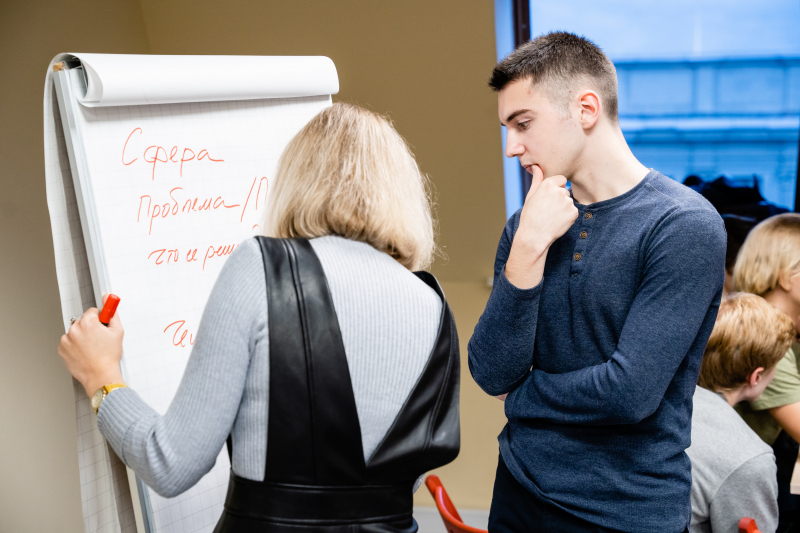
Classes at ITMO Accelerator. Credit: ITMO.NEWS
Other topics that will be discussed at the program’s lectures are resource efficient technologies, waste recycling, using plant-based alternatives to animal-derived products, and complying with environmental norms in food development.
Students can choose any topic within the field. They will also learn to rely on customer development and lean startup methodologies in order to develop the most useful and sought-after products. Through customer development, the teams will be able to gain insightful feedback from their first consumers to gauge the potential of their idea. The lean startup methodology suggests constant real-time testing of the new product to see how potential users view the product and what can be done to satisfy their demands. This constant and quick feedback will help the team to instantly tweak a production technology and continue developing in a different direction.
At the end of the program, 55 selected best teams will get the opportunity to launch a joint pilot project with Uralchem Innovation, bring their products to supermarket shelves, and land a paid internship at major food industry companies.
“We will evaluate a startup’s idea and its implementability, as well as the team behind it – but not their specific experience, rather their ability to bring new ideas to life and the motivation of its members. Our industry experts will help us check the product-market-fit, after which the teams best fitting the accelerator will have the chance to land their products on displays of major retail companies,” adds Alexey Solomatin.
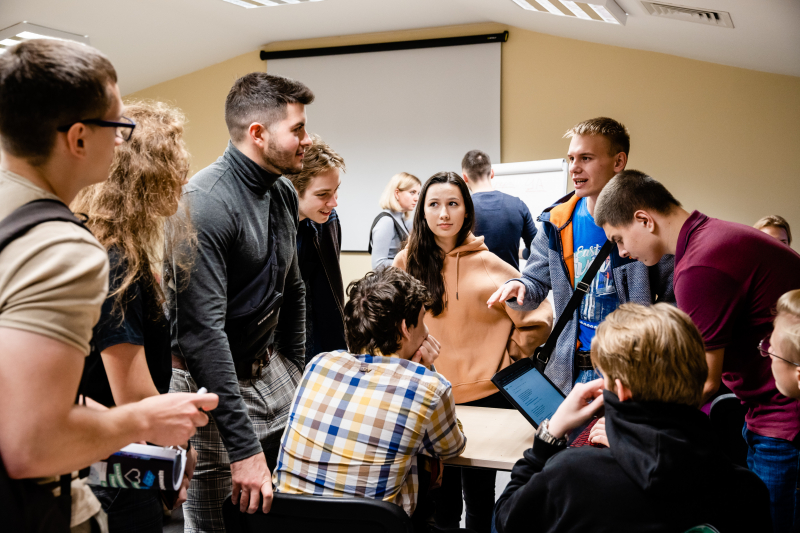
Classes at ITMO Accelerator. Credit: ITMO.NEWS
How to join the footech accelerator
To participate, submit your application on ITMO Accelerator’s website until October 3. Projects related to the development of the following products will have an advantage:
- pea protein-based product formulas;
- pea fiber;
- pea starch;
- protein mixes;
- amino acid complexes;
- food additives for athletes;
- plant-based milk alternatives;
- nut-based milk;
- alternative proteins;
- protein drugs;
- plant-based milk cultures.
